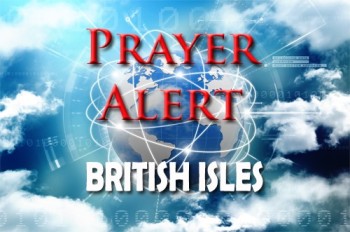Displaying items by tag: learning disabilities
Scotland: patients locked in secure hospitals
The BBC have discovered that Scots with learning disabilities and autism have been locked in secure hospitals and psychiatric wards for decades, unable to get out despite ministers saying 22 years ago they should be living independently in the community. One person with a learning disability had been behind locked doors for 25 years. Another was cleared for release eight years ago but is still in hospital. Families said their relatives had been left to rot. The Scottish government said the findings were unacceptable and that local services must do more to get people into their own homes. Freedom of Information requests revealed that 15 Scots with learning disabilities and autism had been living for twenty years or more in hospital, 40 for over ten years and 129 for over a year. Nine autistic people with learning disabilities who had never committed a crime were in a high-security psychiatric hospital which houses Scotland's most serious criminals.
Princess Beatrice refreshingly honest about her dyslexia
Remembering her early school years, Princess Beatrice said, ‘I remember feeling really confused - an overwhelming sense of “Why does this all feel a little bit muddled?”’ She was reflecting on her childhood coping with dyslexia, as she prepared to welcome her first child with husband Edoardo Mapelli Mozzi, who is also dyslexic. It was the language she chose to describe her dyslexic experience that has sparked media and internet discussion. The pregnant princess referred to the language-based learning difficulty which can affect reading, writing, spelling, and speaking as a ‘gift’ that any of her future children would be lucky to have. ‘I think that having dyslexia and reflecting on where I am right now in my career path, and also as an older person looking back, has definitely allowed me to look at things in a new way and come up with solutions’, she said.
Coronavirus - fears for people with learning disabilities
Nurse academic Irene Tuffrey-Wijne says figures about deaths from coronavirus of people with learning disabilities are needed now to help prevent unnecessary deaths. Public Health England have stated that an expert group will analyse data on the deaths from coronavirus of those with learning disabilities and autism. However, the data will not be published until 2021. Ms Tuffrey-Wijne said, ‘It’s not good enough to look at this retrospectively in 2021; it will be too late then to prevent unnecessary deaths in 2020.’ The Care Quality Commission says there has been a 175% increase in deaths of people with learning disabilities living in adult social care organisations in England, compared with the same period last year. But while elderly people are entitled to be tested for coronavirus, people with a learning disability are not. See
Failing people with learning disabilities
On 12 February the Equalities and Human Rights Commission launched a legal challenge against Matt Hancock, secretary of state for health and social care, over the repeated failure to move people with learning disabilities and autism into appropriate accommodation. It stated, ‘We have long-standing concerns about the rights of more than 2,000 people with learning disabilities and autism being detained in secure hospitals, often far away from home and for many years. We have sent a pre-action letter to Mr Hancock, arguing that his department has breached the European Convention of Human Rights by failing to meet the targets set in tts Transforming Care and Building the Right Support programmes. These targets include moving patients from inappropriate in-patient care to community-based settings, and reducing the reliance on in-patient care for people with learning disabilities and autism.’
World Special Olympics games
Special Olympics GB provides year-round, all-ability, sports programmes for over 10,000 athletes with intellectual disabilities. Each year across England, Scotland and Wales, approximately 27,000 regular sports coaching sessions of at least one hour are delivered across 28 different sports. This coaching leads to an annual average of 100 all-ability, inclusive sports competitions. There are four levels of competition events within Special Olympics; local, regional, national and international. By entering competitions at one level, athletes earn the right to be considered for higher levels. From 14 to 21 March a team representing Special Olympics Great Britain will compete in the 2019 World Games in Abu Dhabi. Please pray and ask God to keep them safe and free from stress in travel and adjusting to a strange country and hot climate. See
'Shameful' restraints in hospitals
The use of restraints on adults with learning disabilities in hospital units in England rose by 50% between 2016 and 2017. Former social care minister Norman Lamb said the use of restraint was ‘shameful’. The Department of Health said it was committed to reducing the use of restrictive force in hospitals. The data, covering both adults and children, also revealed that patient-on-patient assaults rose from 3,600 to more than 9,000 over the same period, and instances of face-down restraint, banned by government guidelines, increased to 3,100. Pray for more finances to be available to ensure that vulnerable people receive the safe support that meets their various social care needs. Pray for better training for those working with adults and children with challenging behaviour and moderate or severe learning disabilities.





